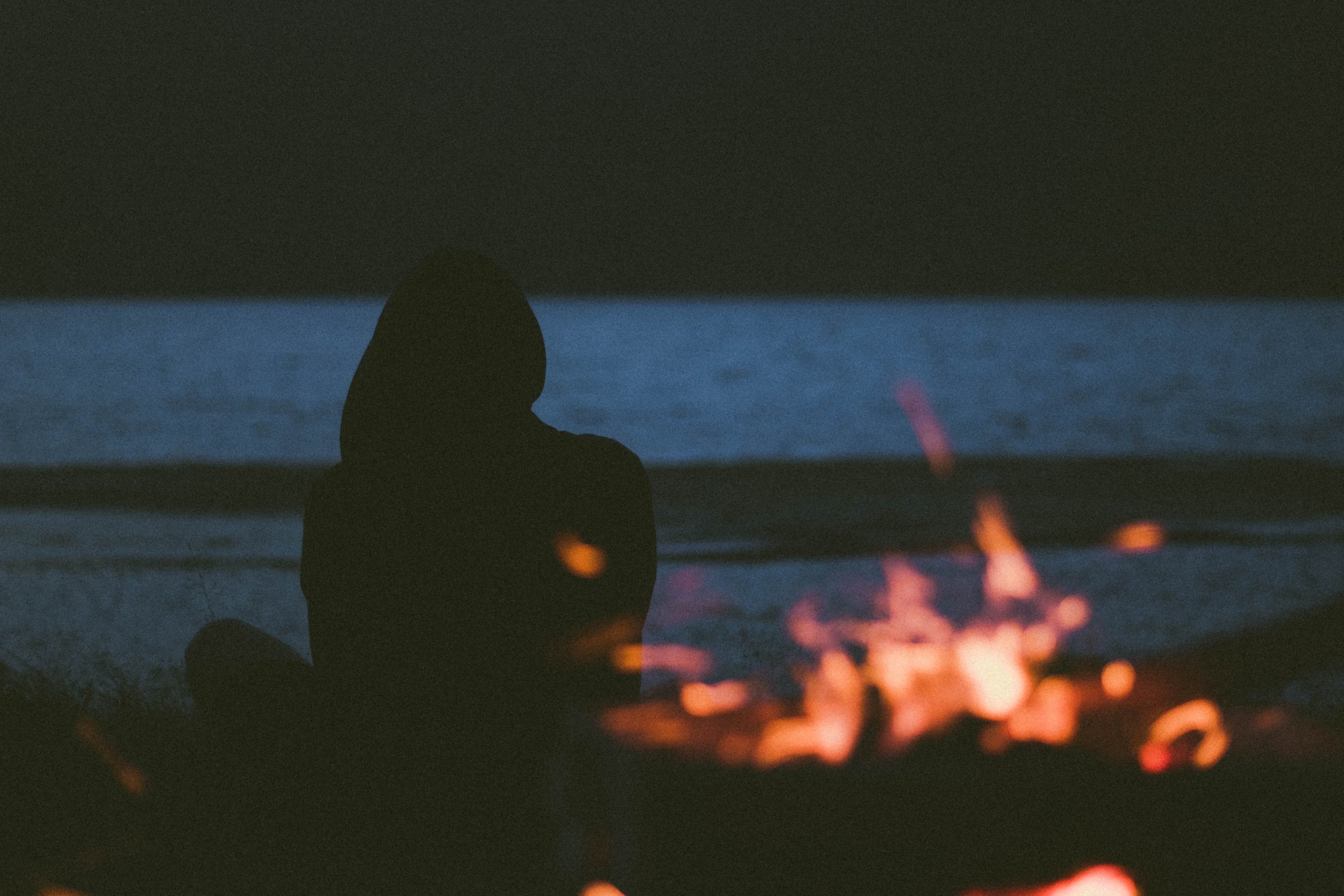Writing As “Fires for the Cold”
I don’t know what camp you fell into when the pandemic began in the spring of 2020, but it seemed that most of us fell into one of two.
There were those who let out a collective sigh of relief when the lockdown went into effect. Finally, the chaos of “busyness” was replaced by the quiet safety within our own four walls and white spaces on our weekly calendars and wildlife appearing on empty highways in the middle of the afternoon. Yes, it was scary and tragic in many ways, but in the midst of this disease of breathlessness, we were finding our breath again.
And then there were those who felt like their world was collapsing in on them. The watercooler chats at work, the hugs given and received without thought, the weekly meet-ups with friends at our local watering holes—those touchpoints of social nourishment were stripped away in the matter of a weekend, not to return for months longer than we could imagine. The stories of patients and healthcare workers suffering, of our favorite hang-outs shuttering, and of friends and family losing jobs sent us spiraling into depression. The breath was sucked out of us. We were suffocating under the weight of the world.
And to which camp did I belong? The first. I don’t say that with any sense of pride. Perhaps the exact opposite. While my heart hurt for the world, my body and soul felt, well, renewed. While others bemoaned the ability to create any art, I wrote an entire novel. While others curled up on their couches, blanketed in bags of Doritos and Reese Cup wrappers, escaping their despair by binge-watching Downton Abbey, I pounded the pavement of our small city, clocking 7 to 10 miles of walking in per day, getting into the best shape of my life. I was thriving. And I felt bad for feeling good. What was wrong with me? Where was my sense of humanity?
But now I’m wondering if I was a just a late bloomer or if the effects of the past two years were compounding in ways I couldn’t see, so that when Russia invaded Ukraine, a dam of sorrow burst in my soul from a torrent I didn’t know existed. Reading the news stories, watching the video footage, and seeing the photographs of the people of Ukraine left me in pieces. I’d find myself standing in the shower crying, sitting at my desk dabbing at my wet eyes, walking through the grocery aisles fighting back tears.
And my writing? I accomplished little to nothing on my current projects. I felt like all my words were balled up in the clenched fist of my heart with no way of escaping. Because, really, what was the use? Evil held sway; good people suffered. The beauty of our world was suffocating under the blanketing power of hate, greed, and our unquenchable appetites.
Writing?
No, thanks. I’d rather stay in bed, sleep off this hangover called Planet Earth.
But then today, as I sat on the floor of the Lauffice by the heat vent (winter simply won’t “go gently into that good night” here in Pennsylvania) with my laptop perched on an overturned laundry basket, I read an article about the musicians performing concerts in the subway stations of Kharkiv. And I wept. I cried harder than I’ve cried in months, nearly inconsolable from the heartache and beauty and despair and hope of it all.
That’s when the fist of my heart unclenched and my words came back.
I don’t know why, but this work of creating matters. It sustains the soul when every comfort feels like sandpaper, when every taste turns bitter on our tongues, when every pleasure ends in the hunger for more. And then we hear a song, or read a stanza, or see the brushstrokes on a canvas, and suddenly there’s a chance--there’s a chance that this all might be okay in the end.
Mary Oliver made this pronouncement in her book A Poetry Handbook, but I would argue that it’s true of all art: “Poetry is a life-cherishing force. And it requires a vision — a faith, to use an old-fashioned term. Yes, indeed. For poems are not words, after all, but fires for the cold, ropes let down to the lost, something as necessary as bread in the pockets of the hungry. Yes, indeed.”
Friends, do not forget. This work you do. It is fire and bread. It is rescue for a drowning world.
Keep writing.
Yours
Maile
